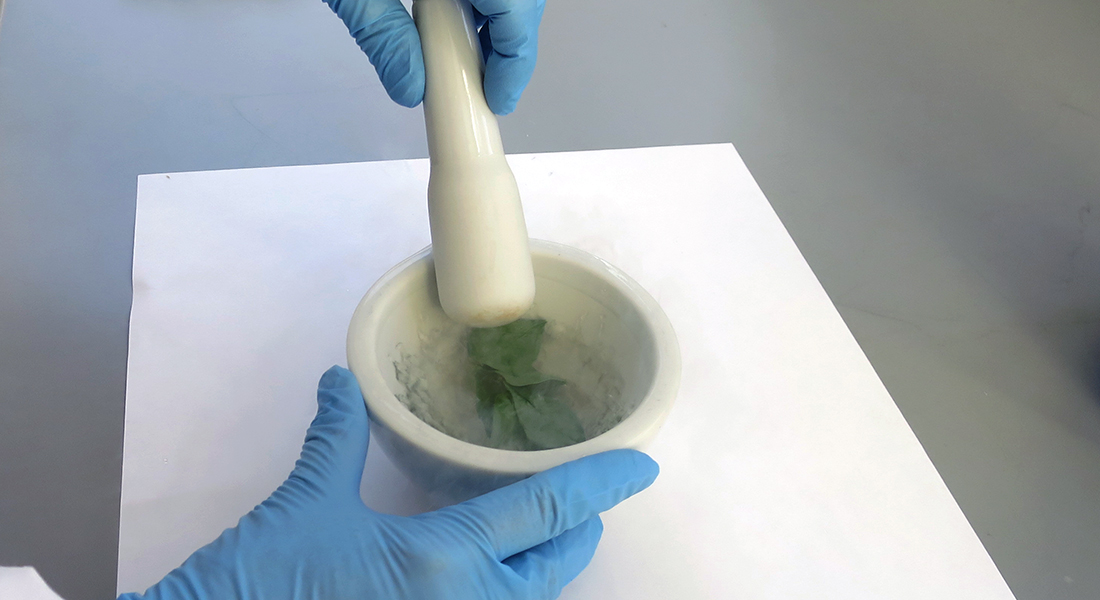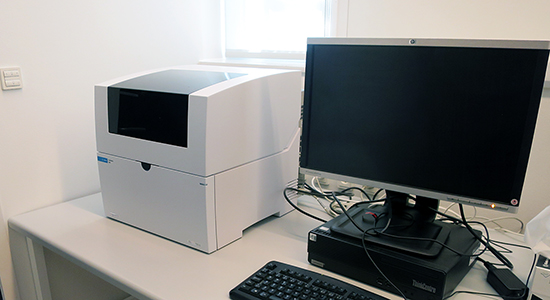DNA laboratory - Genetics and diversity
The DNA laboratory houses state of the art equipment for high quality DNA and RNA isolation and sample processing for massive parallel sequencing for research in forest genetics and ecology.

The DNA laboratory has 4-5 workspaces and one full time lab technician. The DNA lab contains all necessary equipment for sample preparation and homogenization of diverse samples (leaves, roots, wood, soil) for high quality DNA and RNA isolation for various applications (e.g., development of DNA-markers, whole genome sequencing, metabarcoding, metagenomics, transcriptomics).
The DNA laboratory provides facilities for endpoint PCR for genotyping and taxonomic identification and real-time PCR assays for identification and quantification of selected tree pests and pathogens, and to study tree and microbe responses to various stimuli at transcription level. The DNA lab also provides all facilities needed for library preparation for massive parallel sequencing.

- Tissue homogenizer’s (Fastprep-24 5g instrument and Retsch MM400)
- TapeStation 4200 (Agilent Technologies Aps)
- Qubit 3 Fluorometer
- NanoDrop 2000 Spectrophotometer
- PCR machines
- Genetic analyzer (ABI3130xl)
- qPCR instrument (Stratagene Mx3005P)
- Insights into the rhizospheric mycobiome of healthy Sitka spruce
- First study of native oaks in Denmark based on full genome sequencing
- The evolution of plastomes in European white oaks - molecular dating and selection analyses
- De novo assembly of chloroplast genomes: The case of Quercus robur and Q. petraea
- Diversity of surface-active arthropods in young forests in Denmark
The DNA laboratory is used by postdocs, PhD students, Master’s students and research assistants.
The laboratory provides data for the use in the fields of tree breeding, population genetics/genomics, and tree-associated pests, pathogens and beneficial microbes, for conservation and management of forest trees. A core focus area is to support adaptation of forest tree species to environmental changes and new incoming challenges with the aim to facilitate future robust forests.
Molecular tools are used to study adaptive processes in forest trees, for the identification of genetically superior material, to identify problematic pests and pathogens, and to study the interplay between beneficial microbes, pests and pathogens, and their host.
